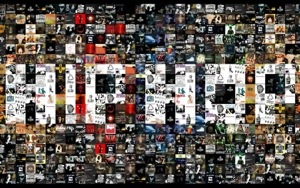At that time, Black people were not so far removed from their forefathers and mothers who were denied and discouraged from learning to read. And the direct descendants of those illiterate former slaves were pushed to read and read well. They were encouraged to become educated and take advantage of those previously coveted freedoms. Therefore, being literate was important and literacy was respected.
The more literate that Black became throughout the 50’s and 60’s, the more they discovered that there was power in language and that through use of language they could change the world. This is why Black leaders began to give speeches through Civil Rights and Black Power movements.
Hip Hop was born in the South Bronx during the time of White Flight, The Son of Sam, and The Bronx Burning. The youth of the families who could leave The Bronx, were enduring a world of crime, drugs, and poverty. It seemed that U.S. could care less about the world it created for these young people to grow up in. As Hip Hop perfected the merging of music and language, the youth began to tell theirs stories.
There is a saying that goes, “Closed mouths don’t get fed.” In America, if a person cannot articulate their needs, it’s not likely that anyone is going to recognize or fulfill those needs. It is imperative that a person to give voice to their situation. It will deepen their understanding of their situation, it will help them navigate the feelings associated with their situation, and it will force the world to see and deal with them and their situation. We are in a graceless era in America and compassion is not freely given. If it’s consideration one needs, one will have to speak up to get it.
This is how Black people liberated themselves from slavery and legal oppression. it is how Black people forced the world to see its own inhumanity and change. Hip Hop gave voice to a generation of overlooked youth who were struggling to maintain their humanity in the face of the most dehumanizing poverty and neglect.
It is our obligation as the Hip Hop generation to let no one silence our voice, to support those artists that stand at the forefront and tell our stories. The day we grow quiet and cease to tell our story, America will cease to acknowledge our pain.
I’m not sayin’; I’m just sayin’,
An Angry Black Man

[…] power: the voice. I, then went on to discuss why the voice of Hip Hop is so important in the post The Voice. In this post, I present the Black dialect and how that legacy demonstrates the power of […]
Loving this series.
Yo, thanks for reading and responding.
Stay tuned…I been side tracked with other news but I got plenty more content coming through this series real soon. Definitely would love to hear your responses.
Reblogged this on United States Hypocrisy and commented:
In 2013 America, many people tend to interpret the musical art-form Hip-Hop as a popular form of spoken-word (Rap) delivered over funky beats that glorifies material wealth and includes a certain amount of sexual grandstanding. However, this image is little more than a recent corporate concoction. Hip-Hop in its purest form has always been a powerful, revolutionary art form born from the Black Revolutionary Spirit of 1960’s and 1970’s America and has since acted as a truly international revolutionary platform. A fellow blogger explores all this and more in his series The State of Hip-Hop. Check it out!
Preciate the support Caleb.
Saw this on Caleb’s blog, interesting and inspiring post!
Thank you for reading and responding. Come back through and always feel free to drop a few lines about your thoughts. Love to dialogue.
Thanks!!! I definitely will. You’re a *great* writer!!!